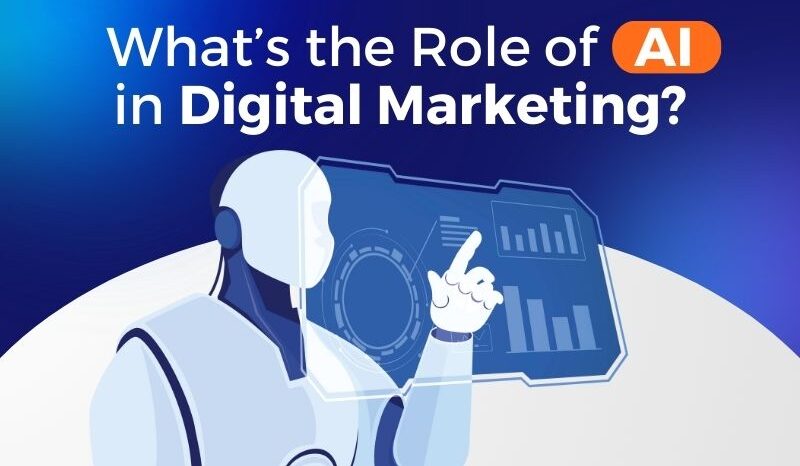
As the digital landscape continues to evolve, artificial intelligence (AI) is emerging as a game-changer in the world of marketing. From automating repetitive tasks to providing deeper insights into consumer behavior, AI presents a wealth of opportunities for marketers. However, it also comes with its own set of challenges. At Skom Enterprises, we recognize the importance of understanding both the potential and the pitfalls of AI in digital marketing. Let’s explore how you can leverage AI effectively while avoiding common traps.
Understanding AI in Digital Marketing
AI encompasses a range of technologies that simulate human intelligence, including machine learning, natural language processing, and data analytics. In digital marketing, AI can analyze vast amounts of data, identify patterns, and automate processes, making it a powerful tool for enhancing marketing strategies.
Opportunities Offered by AI
- Enhanced Customer Insights
AI can process and analyze customer data far more efficiently than traditional methods. This enables businesses to gain a deeper understanding of their audience, uncovering valuable insights into preferences, behaviors, and purchasing patterns. With these insights, marketers can create highly targeted campaigns that resonate with their customers. - Personalization at Scale
Today’s consumers expect personalized experiences. AI allows marketers to deliver tailored content, product recommendations, and targeted advertising based on individual user behavior. This level of personalization can significantly increase engagement and conversion rates. - Automated Marketing Campaigns
AI can automate various marketing tasks, such as email campaigns, social media posts, and ad placements. This not only saves time but also ensures that campaigns are executed consistently and at optimal times, maximizing their effectiveness. - Predictive Analytics
By analyzing historical data, AI can predict future consumer behavior and trends. This allows marketers to anticipate customer needs and tailor their strategies accordingly, improving overall marketing effectiveness. - Chatbots and Customer Support
AI-powered chatbots provide instant support to customers, answering queries and resolving issues 24/7. This enhances customer satisfaction and allows human agents to focus on more complex tasks.
Pitfalls to Avoid
- Over-Reliance on Automation
While automation is beneficial, relying too heavily on AI can lead to a lack of human touch in marketing. Personal connections with customers are vital, so balance automated processes with genuine human interaction. - Data Privacy Concerns
With the increasing use of AI in data analysis, privacy concerns are more significant than ever. Marketers must ensure they comply with regulations like GDPR and maintain transparency about how customer data is used. - Quality of Data
AI’s effectiveness is heavily dependent on the quality of data fed into it. Poor data quality can lead to inaccurate insights and ineffective marketing strategies. Regularly review and cleanse your data to ensure accuracy. - Ignoring the Human Element
AI can analyze data and predict trends, but it cannot replicate human emotions and creativity. Marketers should continue to apply their intuition and creativity in crafting campaigns that resonate on a deeper level. - Cost Considerations
Implementing AI solutions can be expensive, particularly for small businesses. It’s essential to evaluate the cost-benefit ratio and consider scalable solutions that fit your budget.
Implementing AI Effectively
To harness the benefits of AI while mitigating its risks, consider the following steps:
- Start Small: Begin with manageable AI solutions that align with your immediate goals. This will help you gauge effectiveness without overwhelming your team or budget.
- Invest in Training: Ensure your team is trained in using AI tools and understanding the data generated. Knowledge is key to leveraging AI successfully.
- Monitor Performance: Continuously analyze the performance of your AI-driven campaigns. Regular assessments will allow you to adjust strategies based on real-time feedback.
- Combine AI with Human Insight: Use AI as a tool to support human decision-making. Incorporate team insights and creativity into your marketing strategies for a balanced approach.
AI is transforming digital marketing, offering unprecedented opportunities for growth and efficiency. However, it is essential to navigate this landscape wisely, understanding both the advantages and potential pitfalls.
At Skom Enterprises, we are committed to helping you leverage AI to enhance your marketing strategies while keeping the human element at the forefront. Together, we can unlock the full potential of AI, driving your business toward success in the digital age. Let’s embrace the future of marketing with confidence and innovation!

Leave a Reply